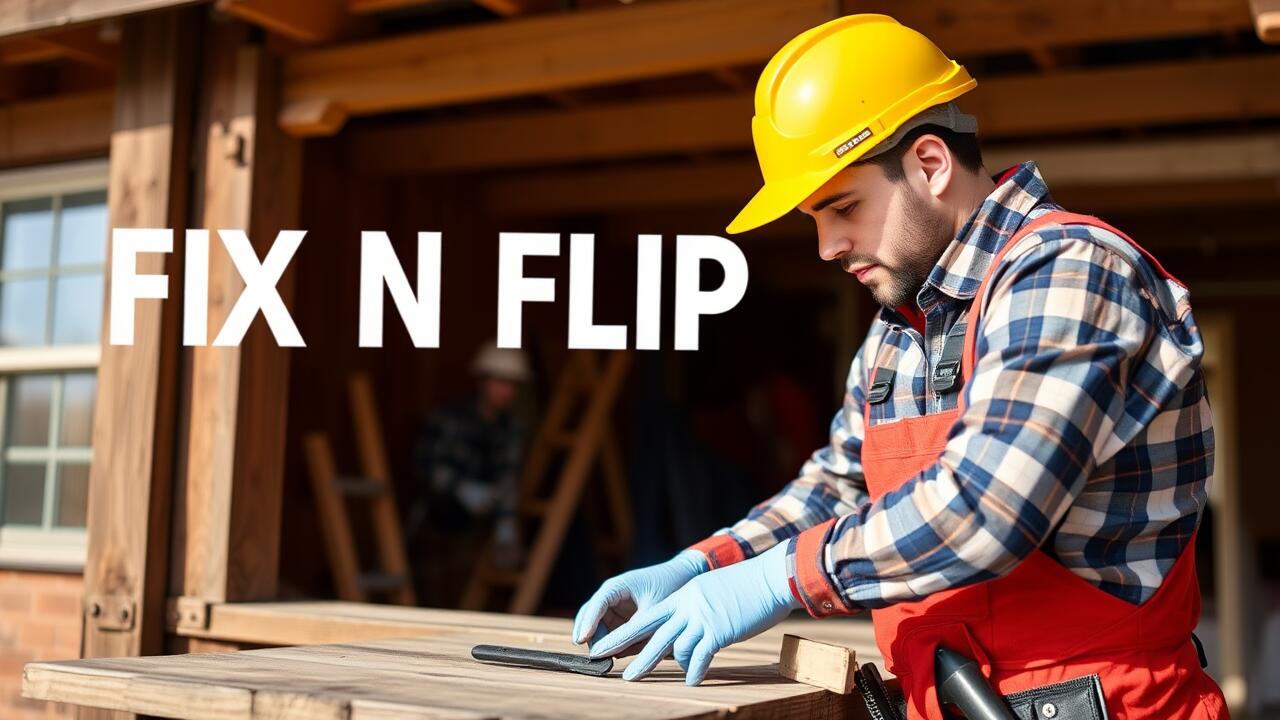
Table Of Contents
Alternative Financing Options
For those looking to invest in real estate, alternative financing options can provide a viable path forward. Traditional banks may have stringent requirements, making it difficult for some investors to secure funding. In this scenario, Fix n Flip Loans emerge as a practical solution. These loans are specifically designed for real estate investors who look to purchase, renovate, and then sell properties quickly, often at a profit.
Hard money lenders and private financing sources offer unique alternatives as well. Unlike traditional lenders, these financing options typically focus more on the property's value rather than the borrower's credit score. This can be particularly advantageous for investors with less-than-perfect credit, allowing them to access the funds needed to capitalize on real estate opportunities while leveraging the quick turnaround associated with Fix n Flip Loans.
Exploring Hard Money and Private Lenders
Hard money lenders and private lenders play a significant role in the realm of fix and flip loans. These financing options primarily focus on the property's value rather than the borrower’s credit score. This approach allows investors to secure funding more quickly, which is crucial in a competitive real estate market. Typically, these loans are short-term, enabling renovators to purchase and rehabilitate a property without the lengthy approval processes associated with traditional lenders.
Investors often turn to hard money lenders for their flexibility and speed. Unlike conventional banks, these lenders evaluate the potential of the property and are more willing to finance projects based on equity rather than creditworthiness alone. This distinction makes fix and flip loans accessible to a broader range of investors, particularly those with limited credit history or lower credit scores. Understanding these dynamics can guide investors in strategically planning their funding routes for successful property flips.
Impact of Credit Score on Loan Terms
A credit score can significantly influence the terms of a fix and flip loan. Lenders often use credit scores to gauge the risk associated with a borrower. A higher credit score typically results in more favorable loan terms, including lower interest rates and better repayment options. Lenders feel more secure offering loans to borrowers who demonstrate a strong credit history. This can impact not just the interest but also the loan amount a lender is willing to extend.
On the other hand, borrowers with lower credit scores may face steeper interest rates and stringent repayment requirements. These conditions can make a fix and flip project less profitable, as higher costs erode potential margins. It is essential for investors to understand how their credit profiles affect financing options and to consider strategies to improve their scores before seeking a loan. This preparation can open doors to better lending experiences and more successful real estate ventures.
Interest Rates and Loan Amounts
Interest rates for Fix n Flip Loans can vary significantly depending on several factors, including the borrower's credit score, the property's value, and the lender's specific criteria. Typically, these loans tend to carry higher interest rates than traditional mortgages due to their short-term nature and increased risk associated with real estate investments. Borrowers with stronger credit profiles often secure more favorable rates, which can lead to substantial savings over the life of the loan.
Loan amounts for Fix n Flip Loans are also influenced by the investor's financial standing and the property's potential after renovations. Lenders generally consider the after-repair value (ARV) when determining how much they are willing to finance. This means that savvy investors can maximize their funding if they present a clear plan for property improvements and demonstrate a solid understanding of the market. Understanding these dynamics is crucial in securing the right loan for successful property flipping.
How to Check Your Credit Score
Checking your credit score is a crucial step before applying for any kind of financing, including Fix n Flip Loans. Many borrowers often overlook this process, unaware that their credit score can significantly influence their loan eligibility and terms. There are several resources available for obtaining your credit report, including annualcreditreport.com, which offers free access to reports from the three major credit bureaus. Regularly reviewing your credit report helps identify any errors or discrepancies that could negatively impact your score.
In addition to annual credit reports, numerous online tools and apps allow you to track your credit score in real-time. These platforms often provide insights into the factors affecting your score and offer personalized recommendations for improvement. A good credit score can open the door to more favorable interest rates and loan amounts, making it easier to secure Fix n Flip Loans that align with your investment goals. Staying informed about your credit standing is essential in navigating the lending landscape effectively.
Resources for Accurate Credit Reports
Accessing accurate credit reports is crucial for anyone considering Fix n Flip Loans. One of the best places to start is with the major credit bureaus: Experian, TransUnion, and Equifax. Each of these bureaus offers consumers the ability to request a free annual credit report. By reviewing these reports, you can identify any discrepancies, which could impact your eligibility and terms for loans.
In addition to the major bureaus, there are online platforms that provide credit score monitoring and reporting services. Services like Credit Karma and Mint offer insights into your credit health and can alert you to significant changes in your score. Regular monitoring can help you prepare for the application process associated with Fix n Flip Loans and help ensure you're presenting the best possible financial profile to lenders.
FAQS
What is a fix and flip loan?
A fix and flip loan is a type of short-term financing used by real estate investors to purchase and renovate properties before selling them for a profit.
What credit score is typically required for a fix and flip loan?
While requirements can vary by lender, a credit score of 600 or higher is generally preferred for fix and flip loans. However, some lenders may consider lower scores depending on other factors.
How does my credit score affect my interest rates for a fix and flip loan?
A higher credit score usually results in lower interest rates, which can significantly reduce your overall borrowing costs. Conversely, a lower credit score may lead to higher rates.
Can I get a fix and flip loan with bad credit?
Yes, it is possible to obtain a fix and flip loan with bad credit by using alternative financing options such as hard money loans or private lenders, although you may face higher interest rates and stricter terms.
How can I improve my credit score before applying for a fix and flip loan?
To improve your credit score, you can pay down existing debts, ensure your bills are paid on time, reduce credit card balances, and check your credit report for any inaccuracies that need to be disputed.



